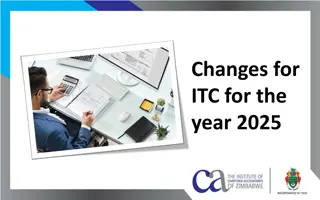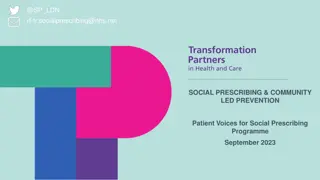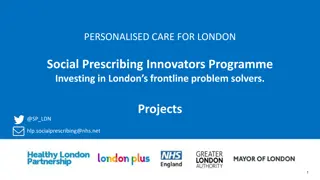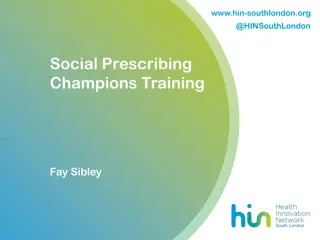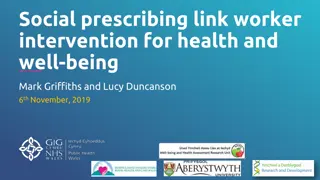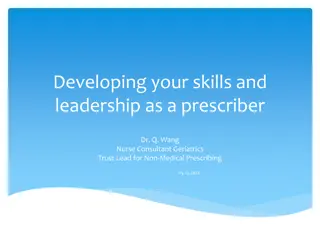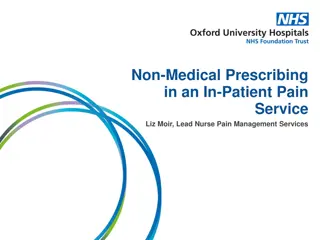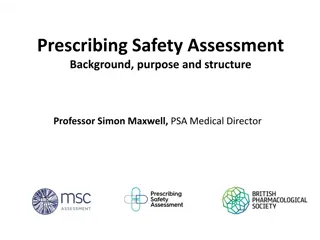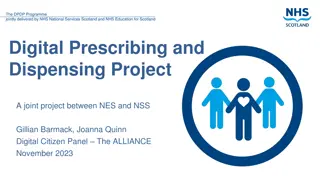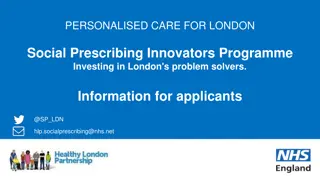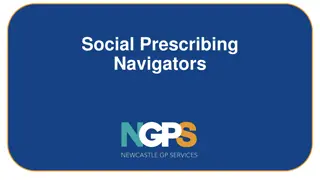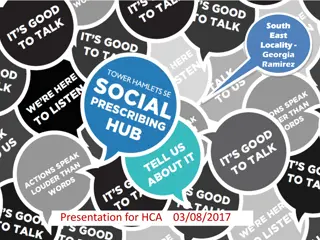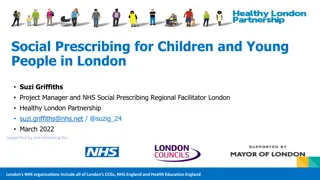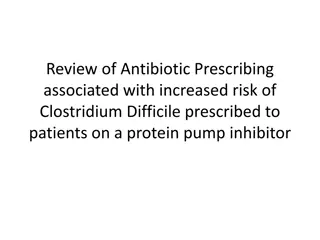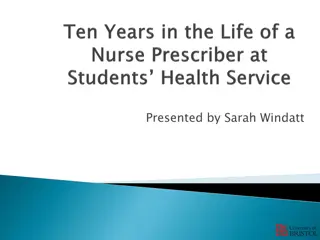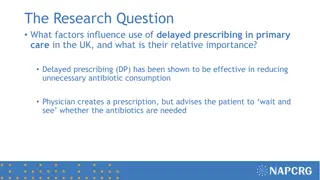Non-Medical Prescribing Programme Competency Framework
Assess, consider options, reach shared decision, prescribe safely & professionally, provide information, monitor & review - key steps in non-medical prescribing. Educational institutions and practice partners collaborate to develop innovative nursing and midwifery education. Role of Practice Assessors, Supervisors, Designated Prescribing Practitioners. Key areas for support include professional skills, teaching/training, working in partnership, and prioritizing patient care.
Download Presentation

Please find below an Image/Link to download the presentation.
The content on the website is provided AS IS for your information and personal use only. It may not be sold, licensed, or shared on other websites without obtaining consent from the author.If you encounter any issues during the download, it is possible that the publisher has removed the file from their server.
You are allowed to download the files provided on this website for personal or commercial use, subject to the condition that they are used lawfully. All files are the property of their respective owners.
The content on the website is provided AS IS for your information and personal use only. It may not be sold, licensed, or shared on other websites without obtaining consent from the author.
E N D
Presentation Transcript
Non-Medical Prescribing Programme - NMC Requirement - Royal Pharmaceutical Society (2016) - A Competency Framework for All Prescribers 1. Assess the patient 2. Consider the options 3. Reach a shared decision 4. Prescribe 5. Provide information 6. Monitor and review 7. Prescribe safely. 8. Prescribe professionally 9. Improve prescribing practice 10. Prescribe as part of a team
Non-Medical Prescribing Programme - Assessment Strategies Drug Dosage Calculation Exam 100% Pharmacology Exam 80% PebblePad Portfolio of Learning 40% Systematic Examination of Practice Ninety Hours of Prescribing Related Practice
NMC Working Together The NMC clearly indicates that Educational Institutions and Practice Learning Partners should provide the flexibility to develop innovative approaches to nursing and midwifery education .
NMC - Role of the PA in Non-Medical Prescribing Assess the student s suitability for award based on the successful completion of a period of practice based learning relevant to their field of prescribing practice and having addressed the ten key skill areas necessary to meet the RPS (2016) Single Competency Framework.
RPS (2019) - PA role To oversee, support and assess the competence of non-medical prescribing trainees, in collaboration with academic and workplace partners, during the period of learning in practice .
Titles PA and PS are NMC only! Designated Medical Practitioner - no longer exists! Practice Assessor - supports, advises and does the signing off. Practice Supervisor - supports, advises and acts as a sounding board. DPP Designated Prescribing Practitioner (PA and PS all rolled into one for HCPC Registrants, Pharmacist Registrants and Optometrist Registrants). Buddie Mentors - as many as you want - informally supporting the student/trainee in any way that is helpful (PA and/or PS should be told about them). Useful in completing the 90 hours of practice. Academic Assessor appropriately qualified/experienced higher education academic member of staff acting as tutor for the student/trainee.
PA/PS/DPP key areas for providing support from RPS (2019) DPP Competency Framework 1. 2. Professional skills and knowledge 3. Teaching and training skills 4. Working in partnership 5. Prioritising patient care 6. Developing in the role 7. Learning environment 8. Governance Personal characteristics
Key Documents Royal Pharmaceutical Society (RPS 2016) A Competency Framework for All Prescribers Royal Pharmaceutical Society (RPS 2019) A Competency Framework for Designated Prescribing Practitioners NMC (2018 - introduced 2020) Part 2: Standards for student supervision and assessment NMC (2018 introduced 2020) Part 3: Standards for prescribing programmes NICE (2015) Medicines Optimisation [Royal Pharmaceutical Society (RPS 2021) A Competency Framework for All Prescribers this can be safely ignored until September 2022]




